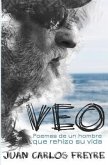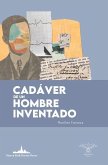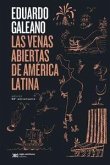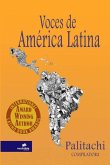Gustavo Gac-Artigas nos entrega un libro en que la voz poética es sujeto de la historia y, desde allí, se despliega el poema. En otras palabras, la historia del hombre de América está inscrita y viva en la cartografía de su voz que, a manera de monólogos, fluye desde la página. Es imposible leer este libro sin levantar la voz, imposible continuar la lectura sin ponerse de pie, imposible completar algunos versos sin llevarse la mano al pecho y sentir en el ritmo del corazón ecos de las planicies de África. Este libro de poemas hace énfasis en que la poesía es un arte vivo y que su lectura nunca puede ser pasiva. Como proyecto literario, hombre de américa entra en diálogo con libros como El país del viento de William Ospina (1992). Libre de cultismos y datos eruditos, hombre de américa se concentra en la voz que da testimonio de su existencia, una memoria de viento que resuena por los siglos. Compuesto con una secuenciación que impone una lectura reflexiva con el mismo respirar del verso, este libro nos invita a dialogar con nuestra propia memoria y a reconocer en la otredad una hermandad ancestral y permanente. La voz poética, focalizada en la primera persona del singular, se desdobla en un nosotros colectivo que reconoce sus líneas ancestrales, sus contradicciones y luchas, sus duelos y sus esperanzas, su memoria y su compromiso con sociedades más justas. Hombre de américa, está claro, nos entrega una historia viva de nuestros pueblos que nunca podremos encontrar en las enciclopedias ni en las bases de datos. La historia es el hombre y su voz; su piel es el correlato de la cartografía ancestral que nos interpela y nos convoca; su verdad es el ser que se conoce y se reconoce en el devenir. Es imposible leer este libro -repito y aclaro- sin levantar la voz y gritar ¡justicia! Gustavo Gac-Artigas delivers a book in which the poetic voice is the subject of history, and, from there, the poem unfolds. In other words, the history of humankind in America lives and inscribes itself in the cartography of his voice which flows from the page like monologues. One cannot read this book and resist the urge to raise one's voice; one cannot remain seated but must stand up; one cannot complete some verses without bringing a hand to one's chest to feel the echoes of African plains resonating through the heart. This poetry collection emphasizes that poetry is a living art that does not allow passive reading. As a literary project, hombre de américa dialogues with books such as William Ospina's El país del viento (1992). Free of cultism and erudite references, hombre de américa centers on the voice that renders a testimony of its existence, a memory of wind resonating throughout centuries. The sequencing of the poems imposes a reflective reading marked by the breathing of each verse. This book invites us to dialogue with our memory and recognize an ancestral and eternal brotherhood in otherness. The poetic voice, focalized is on the first person singular, unfolds into a collective "we" that recognizes its ancestral traces, its contradictions and struggles, its grief and its hopes, its memory, and its commitment to social justice. Man of the americas presents the reader with a living history of our peoples that goes far beyond encyclopedias and databases. History is humanity and its voice; its skin echoes and parallels the ancestral cartography that challenges and summons us; its truth resides within those who can know and recognize themselves in what is to come. One cannot read this book -I repeat and clarify- and resist the urge to raise one's voice to shout, justice! CARLOS AGUASACO >
Hinweis: Dieser Artikel kann nur an eine deutsche Lieferadresse ausgeliefert werden.
Hinweis: Dieser Artikel kann nur an eine deutsche Lieferadresse ausgeliefert werden.








